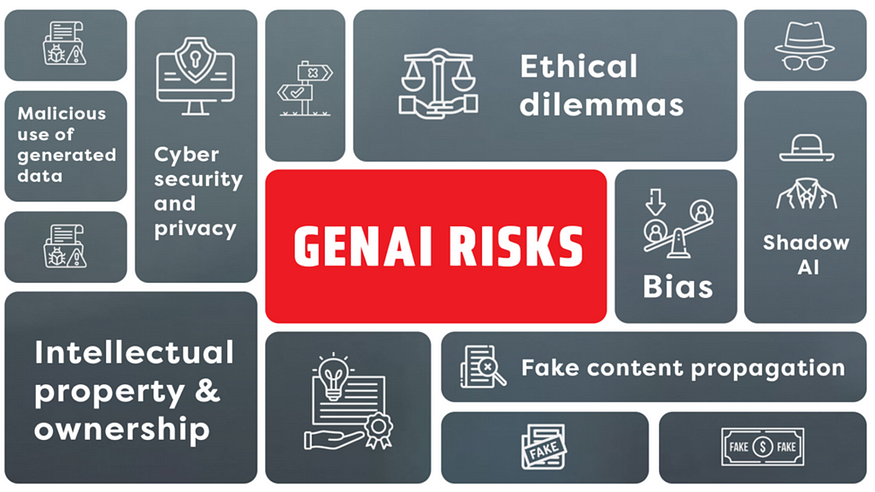
AI and Privacy: Essential Strategies for Savvy Marketeers
Audience: Business, Marketing, and Sales
Data privacy concerns have been rising as AI technologies like ChatGPT become more prevalent. As marketeers, we should be even more concerned about copyright infringement and management of sensitive information. In this article, we will discuss how marketers can address these challenges effectively.

Understanding the Risks: AI and Data Privacy
AI systems often rely on vast datasets. It doesn’t care if the information it has sourced include personal information and copyrighted content. This brings in some risks like data ownership and copywrite, Data security, and regulatory compliance.
- Data Ownership and Copyright: AI models, including ChatGPT, generate content based on training data. This could easily include copyrighted content that you might not be aware of. If you use this content, then this lack of transparency can lead your organization to legal issues. Imagine doing a datasheet or product brief with copyrighted content!
- Data Security: The more the data, the more risk. Basically, if you are sourced large amounts of data for your analytics, then you also increase the risk of breaches, potentially exposing sensitive user information. We marketeers are notorious about collecting personal information and we need to store it in a secure way!
- Regulatory Compliance: Regulations like GDPR and CCPA impose strict requirements on data protection. The ownness is on you to ensure transparency about data use and secure handling practices. Though some organizations have automated process to manage this, you need to inform that your data engineers about this privacy rule.

So how do you handle data privacy when you know that you and your team are actively using AI?
Best Practices for Handling Data Privacy in AI
To overcome these challenges, you should follow these best practices:
- Implement Data Anonymization Techniques: If your organization is using AI to analyze customer feedback, then you should anonymize data to ensure that individual identities are protected before analysis. This could be easily accomplish using data masking and pseudonymization. This will ensure that the AI models cannot trace back to individual users.
- Ensure Transparency and Explainability: An AI-powered recommendation engine for e-commerce should inform users how their browsing data influences recommendations. Here, you need to provide clear explanations of how AI-generated content is derived and disclose any data sources used in the process.

- Regularly Update AI Models: A financial services firm should periodically update its AI fraud detection algorithms to align with evolving data protection standards and new threat patterns. This means your data engineer team has to keep AI models up-to-date with the latest data protection practices and remove outdated data sources.
- Establish Robust Data Governance Policies: An online healthcare provider should have strict data governance policies to protect patient data used in AI-driven diagnostics. Here, you have to develop and enforce comprehensive data handling policies, ensuring that all employees understand their role in data protection.
- Engage in Ethical AI Practices: Your content generation platform should avoid using AI to create derivative works from copyrighted materials without proper licensing. Your organization need to focus on generating original content or acquiring licenses for third-party data, and implement safeguards to prevent copyright infringement.
- Audit and Monitor AI Systems: A social media company should audit its AI content moderation system to ensure it does not inadvertently censor or misinterpret user content. Some companies regularly review AI systems for privacy issues and biases, and use monitoring tools to detect unauthorized data usage.
Conclusion: Building Trust in AI through Data Privacy
Managing data privacy in AI is crucial for maintaining user trust and regulatory compliance. By adopting these best practices, marketers can address data privacy concerns effectively. This will ensure that AI technologies are used responsibly and ethically. This approach not only helps in legal compliance but also strengthens user confidence, which is vital for the long-term success of AI-driven products.
In a landscape where data security and ethical practices are paramount, safeguarding user data and respecting copyright laws are not just legal obligations but also competitive advantages.



